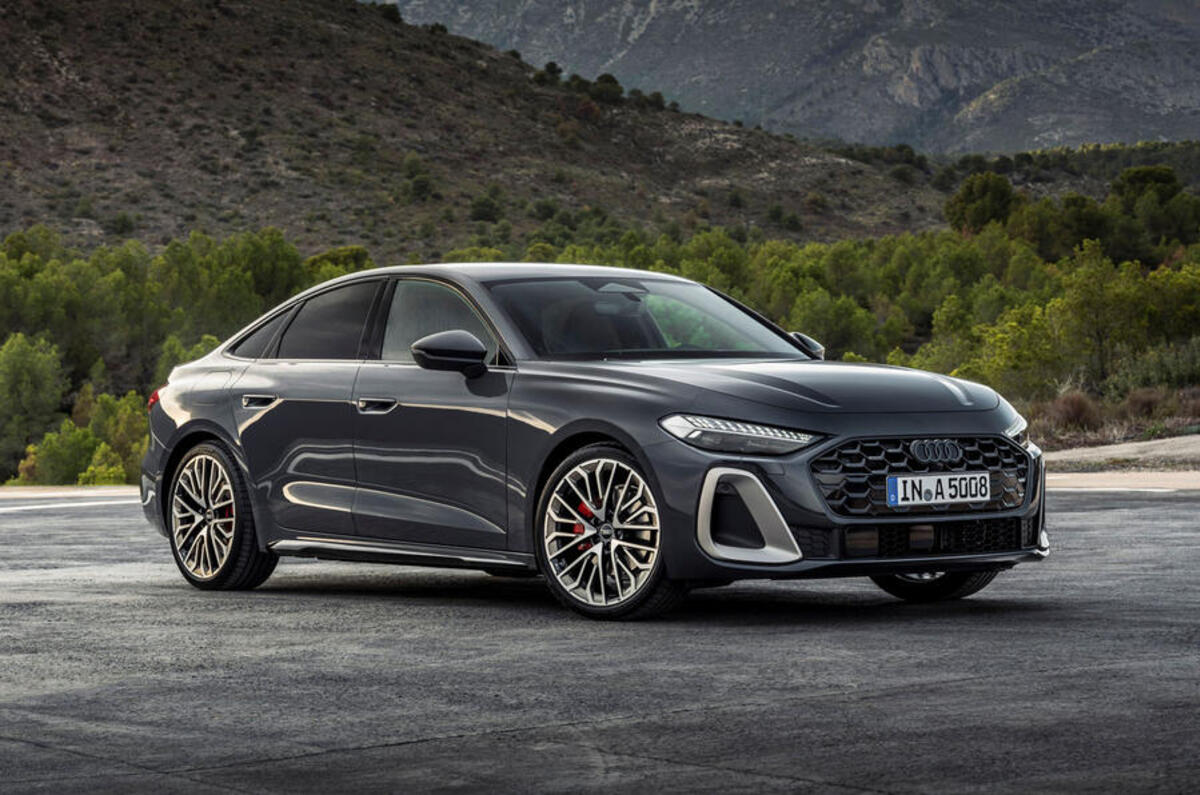Audi will expand and upgrade its hybrid offering over the coming years because the transition from combustion cars to EVs will take “longer than initially thought”.
The company is sticking to its previously announced goal of having an all-electric model range from 2033, but it will expand that line-up gradually, offering a combustion and EV option in each of its core segments until then - as it does already with the Audi Q5 and Q6 E-tron, for example.
Other companies, including Mercedes, BMW, Ford, BYD, Kia and Stellantis, have also voiced long-term commitments to hybrid powertrains in recent weeks for the same reasons.
Audi CEO Gernot Döllner said the firm’s strategy is “future-proofed for the next 10 years”, which, he predicts, will be an extended “transition phase” between combustion and electric vehicles.
“Within the Volkswagen Group, we recognised early on that plug-in hybrids were a relevant project technology and now we see that the bridge is longer than we initially thought,” he told reporters.
In recognition of the increased demand for hybrids, Audi has engineered a new family of combustion engines for its next generation of PHEV models, which will be able to travel up to 62 miles on electric power thanks to a significantly larger battery.
The new PPC versatile architecture that underpins these cars – beginning with the Audi A5 revealed last week – can also accommodate range-extender powertrain arrangements, though the firm has yet to confirm plans in this area.
Despite Audi’s renewed focus on hybrids, though, Döllner said the company’s long-term view is that EVs will become mainstream.
He said: “We see right now a slowly negative trend in battery-electric vehicles, but there are still positive growth rates regarding battery-electric vehicles, so it's just that the growth rates have have slowed down.
“But we believe, especially with the gradient of the innovation in the battery-electric segment, that the battery-electric vehicle is superior.
“For the next 10 years at least, we will have a transition phase with three relevant drivetrains: that's highly efficient ICE drivetrains, plug-in hybrids (especially becoming important in China and North America), and battery-electric vehicles.
“The positive message is that we are flexible.”
Döllner said Audi’s “first-generation” electric car line-up will be complete in 2027, a year after the launch of its final combustion model - which, based on estimated launch timings, is likely to be the next-generation Audi Q7 that has been spotted testing recently.
The company currently sells four electric cars and will soon reveal the new A6 E-tron ahead of a launch later this year. The new A4 E-tron is expected to follow next year, and electric equivalents to the A3 and A8 are also known to be in the works.








Join the debate
Add your comment
If Audi made better electric cars, the uptake may quicker. No point offering a shit product, then complaining no one wants it.
Wlould love to know what this guy's criteria are for the statement "we believe the BEVs is superior." It may well prove to be for certain applications - in my view that is not the case yet for many of them. That the highly corporate VW Group, like all other manufuacters, has failed to follow the lead of the entrepreneur-lead Tesla in investing in a charging network perhaps indicates the group is not as convinced about BEV as this CEO suggests.
As a technology BEV is vastly superior to ICE. Yes, some applications are not quite as useful or cheap, at the moment, but neither were petrol cars from 100 years ago.
Maybe because he was thinking it is quieter, less poluting at the roadside, can be made to go faster at little extra cost, cheaper to run, simpler, less complicated, much more efficient, smoother, more reliable, lower servicing costs etc.